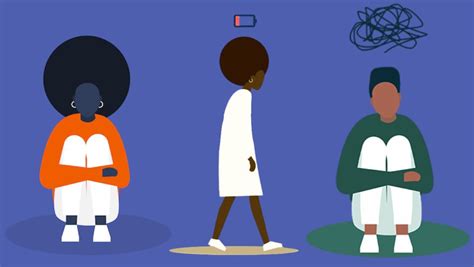
As always , we like to provide our readers with additional information on our podcast topics. Resources on Black Mental Health accompanies our wonderful talk with Dr. Sarah Y. Vinson from the Morehouse School of Medicine. If you are interested in seeing more of Dr. Vinson’s work, she is the co-editor of SOCIAL (In) JUSTICE AND MENTAL HEALTH, available where you buy books.
Racism, Health and Trauma
Some of our earlier guests talked with us about how racism impacts Black health. We know that it impacts us in many ways. The Centers for Disease Control (CDC) identified racism as a negative factor on health for many Black and Brown communities. It can impact us physiologically, meaning it affects our physical bodies. And, in addition it can also affect us psychologically. Experiencing racism, by itself causes trauma. And sometimes, as Dr. Vinson points out, our health is impacted by racist police violence. The recent killing of Tyre Nichols re-opened old wounds in our community. Not only do the killings impact us, but the media’s insistence on replaying Black death over and over deepens our trauma.
Police Killings and Trauma
Studies show the Black community is traumatized when there is an unjust police killing. And further, that the killings negatively impact mental health. Consistently studies are showing that killings worsen mental health in the community. An interesting point of one of the studies is that we are less traumatized when the murdered person was armed. As a result of ongoing incidents of police violence, many communities need to develop coping mechanism to address police triggered trauma.
The Mentally Ill at Increased Risk of Police Violence
As we see repeatedly in the news, people suffering a mental health crisis are at great risk when interacting with the police. Some of you may remember Eleanor Bumpers, who died at police hands in 1984. There are still too many stories of families, or ill individuals themselves, calling the police for help. But when the police arrive they “help” by killing the troubled person. Mental health experts and police abolitionists question the propriety of sending an armed responder with no mental health training to respond to a call for help. Dr. Vinson spoke on this very topic and mentioned efforts to change how we respond to a mental health crisis.
The Mental Health of Children in Our Communities Through the Pandemic
We didn’t have enough time to fully explore the mental health trends for our Black children. But, it is important to note Black Children were experiencing higher levels of mental distress even before COVID. As early as 2017, psychologists recognized higher numbers of children attempting suicide. By the way, experiencing repeated acts of racism can cause children to think about suicide. The COVID pandemic aggravated the mental health stability of our children. More children are now showing signs of anxiety and other stress related mental health issues. In addition, children suffer from the same problems obtaining mental health treatment as do adults. As one of the authors put it, there is a lack of : accessibility, availability and appropriateness of mental health care services.
We can only scratch the surface of all the issues on this topic but hopefully these resources on Black mental health can get you started on learning more about the topic.